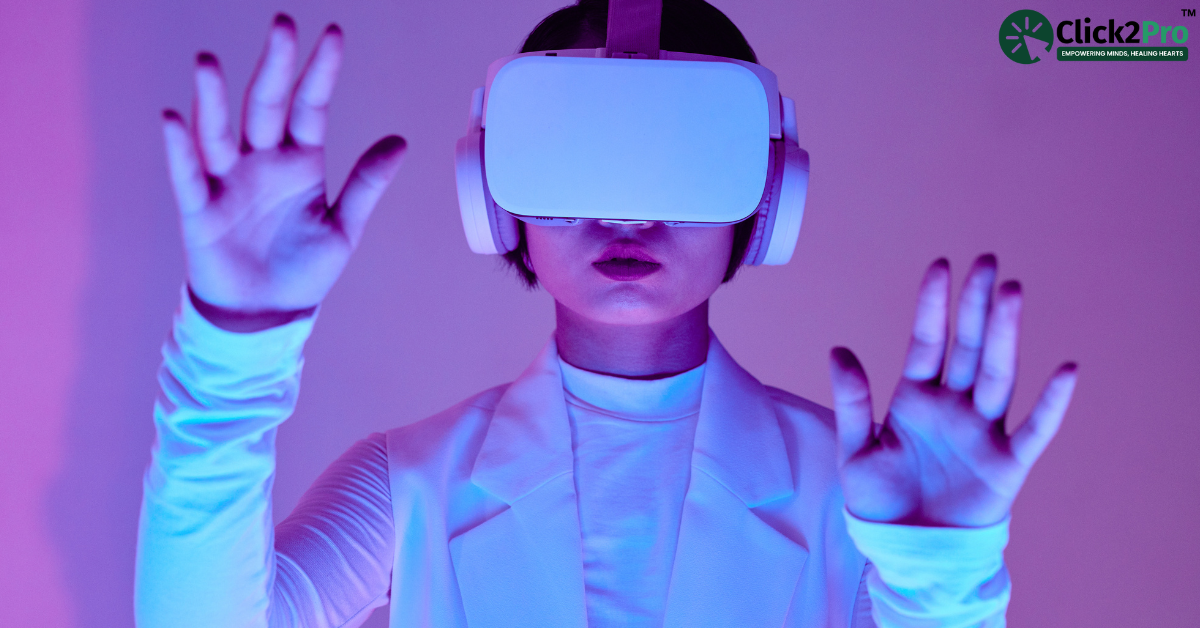
Revolutionizing Paranoia and Social Phobia Treatment with Virtual Reality
Table of Contents
In recent years, virtual reality (VR) has emerged as a groundbreaking tool in mental health treatment, offering innovative approaches to conditions like paranoia and social phobia. By immersing individuals in controlled, simulated environments, VR therapy provides a unique platform for exposure and cognitive-behavioral interventions. This method allows patients to confront and manage their fears in a safe setting, leading to significant improvements in their daily lives.
Virtual Reality Therapy
Virtual reality therapy involves the use of VR technology to create immersive environments where individuals can engage in therapeutic exercises. For those dealing with paranoia and social phobia, VR can simulate various social scenarios, enabling patients to practice coping strategies and reduce anxiety responses. This approach has been particularly beneficial in providing exposure therapy without the risks associated with real-world situations.
Benefits Over Traditional Therapy
Traditional therapy methods, such as in vivo exposure, require patients to face their fears in real-life settings, which can be daunting and sometimes impractical. In contrast, VR therapy offers several advantages:
Controlled Environment: Therapists can tailor scenarios to the patient's specific fears, adjusting the intensity and context as needed.
Safety and Privacy: Patients can confront their anxieties without the unpredictability of real-world interactions, reducing the risk of overwhelming experiences.
Accessibility: For individuals in areas like Vidisha, where specialized mental health services may be limited, VR therapy can be a valuable resource.
Success Stories and Research Insights
Numerous studies have demonstrated the efficacy of VR therapy in treating social anxiety and paranoia. For instance, research published in The Lancet Psychiatry highlighted that VR-based cognitive behavioral therapy significantly reduced paranoia and anxiety in patients with psychotic disorders.
Challenges and Considerations
While VR therapy presents promising benefits, certain challenges remain:
Technical Limitations: Access to VR equipment and the need for technical support can be barriers, especially in regions with limited resources.
Cost: The expense of VR setups may be prohibitive for some patients and healthcare providers.
Individual Variability: Not all patients may respond equally to VR therapy; personalized assessments are crucial to determine suitability.
Future Prospects
The future of VR therapy in treating paranoia and social phobia is promising. Advancements in technology are making VR more accessible and affordable. Moreover, integrating artificial intelligence could lead to more personalized and adaptive therapeutic experiences. As research continues, VR therapy is expected to become a more widely accepted and utilized tool in mental health treatment.
Getting Started with VR Therapy
For individuals in Vidisha interested in exploring VR therapy, it's essential to consult with a qualified mental health professional to assess its suitability. Many practitioners now offer online counselling sessions, providing greater accessibility to those in remote areas. Engaging in an online counselling session in Vidisha can be a convenient first step toward understanding and potentially integrating VR therapy into one's treatment plan.
Conclusion
Virtual reality therapy represents a significant advancement in the treatment of paranoia and social phobia. By offering immersive, controlled environments for exposure and cognitive-behavioral interventions, VR therapy provides a unique and effective approach to managing these conditions. As technology continues to evolve, VR therapy is poised to become an integral component of mental health care, offering hope and improved quality of life for many individuals.
FAQs
1.What is virtual reality therapy, and how can it help with social phobia?
Virtual reality therapy utilizes VR technology to create simulated environments where individuals can practice social interactions. This exposure helps reduce anxiety associated with social situations by allowing patients to confront their fears in a controlled setting.
2.Is VR therapy effective for treating paranoia?
Yes, studies have shown that VR therapy can effectively reduce symptoms of paranoia by enabling patients to engage with scenarios that trigger paranoid thoughts in a safe environment, facilitating cognitive restructuring.
3.How does virtual reality exposure therapy work for social anxiety?
VR exposure therapy involves immersing patients in virtual social situations that provoke anxiety. Through repeated exposure and guided therapeutic techniques, patients learn to manage their anxiety responses, leading to decreased symptoms over time.
4.What are the benefits of VR therapy compared to traditional therapy for social phobia?
VR therapy offers a controlled, safe environment for exposure, reducing the risks associated with real-world exposure. It also allows for customizable scenarios tailored to the patient's specific fears, enhancing the effectiveness of treatment.
5.Are there any side effects or risks of using virtual reality therapy for mental health?
Some individuals may experience mild side effects such as dizziness or nausea during VR sessions. However, these are typically temporary and can be managed with the guidance of a trained therapist.
6.How accessible is virtual reality therapy for social phobia and paranoia?
Accessibility varies depending on location and availability of resources. In areas like Vidisha, exploring options such as online counselling sessions can provide access to VR therapy and other mental health services.
7.How long does it take to see results with VR therapy for social anxiety?
The duration varies among individuals, but many patients report improvements after several weeks of consistent VR therapy sessions, with significant progress often observed within a few months.
Transform Your Life with Expert Guidance from Click2Pro
At Click2Pro, we provide expert guidance to empower your long-term personal growth and resilience. Our certified psychologists and therapists address anxiety, depression, and relationship issues with personalized care. Trust Click2Pro for compassionate support and proven strategies to build a fulfilling and balanced life. Embrace better mental health and well-being with India's top psychologists. Start your journey to a healthier, happier you with Click2Pro's trusted online counselling and therapy services.






